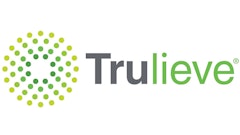
Daniel Cotto worked as a forklift operator for Ardagh Glass Inc. in Bridgeton, New Jersey, until his medical marijuana use left him on the wrong end of a human resources issue.
According to a lawsuit filed in New Jersey’s federal court district, Cotto notified his employer of his medical marijuana use when he was hired. On Nov. 1, 2016, Cotto hit his head on the roof of a forklift. As part of his return to “light-duty” work, Cotto was required to pass a drug test. He again informed his employers of his medical marijuana use and the simple fact that he would not pass the test. Amid ongoing back-and-forth conversations with Ardagh’s corporate office, Cotto was suspended. He remains out of work at the company nearly two years later.
Cotto asserted that the company had discriminated against him in his role as a medical marijuana patient, joining scores of plaintiffs who have unsuccessfully sued their employers when their status as registered medical marijuana patients drove a wedge between their workplace and the burgeoning cannabis industry.
Judge Robert Kugler did not agree with Cotto on the matter of discrimination, issuing an order Aug. 10 that sides with Ardagh Glass. (Read the full judicial order below.)
“[W]e find that neither the New Jersey Law Against Discrimination nor the New Jersey Compassionate Use Medical Marijuana Act require an employer to waive a drug test as a condition of employment for federally-prohibited substance,” he wrote.
This latest case echoes similar rulings in New Mexico (an employee sued Tractor Supply Co. and lost), Michigan (a lawsuit against Walmart) and other states.
The Michigan lawsuit was filed nearly 10 years ago and is still cited in judicial orders to this day: “The fundamental problem with Plaintiff’s case is that the [Michigan Medical Marijuana Act] does not regulate private employment,” the judge wrote in that case. “Rather, the Act provides a potential defense to criminal prosecution or other adverse action by the state.”
Time and time again, judges have separated the rights of the private sector from the nascent legality of medical cannabis in certain states. Bills have been introduced in several state legislatures to protect employees who use medical marijuana and to demand that private employers “tolerate” legal medical marijuana use.
(Kugler, in New Jersey, also leaned on the federally illegal status of marijuana as a “departure point” in his argument, which is an impossible burden for plaintiffs to surmount for now. Cannabis indeed is considered illegal at the federal level—where employment discrimination lawsuits are often filed—and its status is something that plaintiffs simply cannot withstand that sort of judicial contention.)
And yet, some states have proactively written employee protections into their medical marijuana law.
In Arizona, for instance, “Unless a failure to do so would cause an employer to lose a monetary or licensing related benefit under federal law or regulations, an employer may not discriminate against a person in hiring, termination or imposing any term or condition of employment or otherwise penalize a person based upon … [a] registered qualifying patient’s positive drug test for marijuana components or metabolites, unless the patient used, possessed or was impaired by marijuana on the premises of the place of employment or during the hours of employment.”
However a state regulates this new area of employment law, cannabis companies themselves are certainly not immune.
Taking Pennsylvania’s medical marijuana regulations as an example, a white paper published by Henderson Brothers may as well be addressing a cannabis cultivation facility owner when it states: One risk management item an employer must also recognize is that the [medical marijuana law] does not protect a person or entity from criminal or civil liability resulting from “[u]ndertaking any task under the influence of medical marijuana when doing so would constitute negligence, professional malpractice or professional misconduct.”
Risk is inherent in all lines of work that involve heavy machinery and physical labor. Employers of all stripes know to safeguard against any liabilities that may arise from that type of work, whether in an indoor grow or a greenhouse environment.
Henderson, a Pittsburgh-based insurance firm, does a fine job in outlining steps that cannabis employers can take to ensure that they’re complying with labor laws and medical marijuana laws in their state.
- Educate managers regarding [your state’s medical marijuana law];
- Review your handbook and modify certain policies, such as your anti-discrimination policy to account for medical marijuana status, your substance abuse policy to address medical marijuana use in and outside the workplace, and your drug-testing policy to eliminate blanket, zero-tolerance thresholds. Consider similar protocols for new hires and onboarding;
- Keep documentation of signs of an employee under the influence, his or her conduct that falls below the normal standards for the position, and the nexus between the two’
- Explore whether an accommodation may be appropriate for an employee who presents a valid medical marijuana card;
- Keep an employee’s medical information confidential.
Judicial order: Cotto v. Ardagh Glass by sandydocs on Scribd
Top photo courtesy of Adobe Stock

























